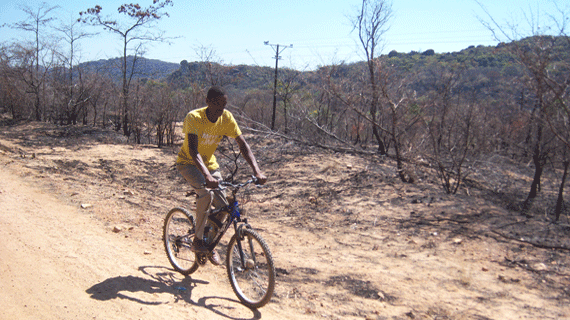
DROUGHT has become part and parcel of daily life and is now so common in the Matobo district of Matabeleland South that it marks an important part of the annual calendar.
SILAS NKALA STAFF REPORTER
Matobo district is home area of the late veteran nationalist Joshua Mqabuko Nkomo and also happens to be the place of the Njelele shrine, which was famous for hosting rain-making ceremonies annually.
But it looks like the Njelele shrine has lost all its power as drought in the district is now close to becoming a humanitarian catastrophe.
Did rain-making ceremonies actually result in good rainfall or it was just coincidental? If the ceremonies worked then, why are they not being performed to end the drought which has largely given birth to the hunger crisis in the district and most parts of the country?
Traditionalists believe that invasion of the Njelele shrine by former Zanla combatants to conduct traditional rituals without consulting local chiefs had angered the ancestors.
It is also alleged that some soldiers from the 5 Brigade during Gukurahundi violated the shrine by removing some sacred traditional wares from the caves, a development local villagers blame for lack of rains.
Villagers say Matobo district has experienced drought since 1987 resulting in most of them literally living from hand to mouth.
- Chamisa under fire over US$120K donation
- Mavhunga puts DeMbare into Chibuku quarterfinals
- Pension funds bet on Cabora Bassa oilfields
- Councils defy govt fire tender directive
Keep Reading
Kezi is one of the most affected areas in the district and is arid, low in resources and under substantial ecological pressure.
Living conditions of local people have become very difficult as the land yields no crops and water is insufficient for human and animal consumption.
People compete for the meagre available resources and have not harvested anything in the last few seasons.
They have to survive by buying food from the beginning to the end of the year if food aid is not made available.
Southern Eye visited Kezi on Wednesday and established that lucky villagers with financial resources buy food from shops where a 50kg of mealie-meal costs between $35 and $37.
Trust Khumalo of White Waters said the situation was serious in his area as food shortages continue to haunt the district.
“We have no food,” Khumalo said. “People have not been harvesting in this area for so long and at the moment we rely on buying maize from some people, but we don’t know where they get it from. The biggest problem is that we do not even have the money to buy that maize as most of us rural people are not working.”
A bucket of maize sells for between $6 and $10, an amount most villagers say is too high for them considering that they do not work.
Another villager Shamiso Moyo, who stays close to Kezi business centre, also echoed Khumalo’s sentiments saying her family was struggling to get food due to poor harvests in the district.
“We rely on shops for food; that is if we have the money and if not we just starve hoping to get some help from nowhere,” Moyo said.
Mhlasi village kraal head Mocker Ndiweni under Chief Bakwayi, said getting food in his village was a nightmare and only those with money were not complaining because all shops have maize meal in stock.
“There is serious hunger here,” Ndiweni said. “We are starving and we hope to get food assistance from the government and donors because there is totally nothing to eat at the moment.
“This year we have not seen any maize deliveries from the Grain Marketing Board under the grain loan scheme. We last had that maize last year and we still hope the government will deliver food here,” Ndiweni added.
He said those with money bought mealie-meal from the shops.
“Some shops sell a 50kg bag of mealie-meal at between $35 and $37, but since we do not have money, it’s a challenge to have a proper meal every day.”
Without money, villagers lack the buying power to purchase food from shops and those unable to purchase the higher-priced food fall into malnourishment and hunger.
Ndiweni said drought exacerbates the problem as there is simply not enough rainfall to produce a good harvest because when rain does fall, the sun-baked earth does not immediately absorb the water, but rather causes flash floods and outbreaks of water borne diseases.
A recent report by the World Health Organisation reveals that due to poor yields last season, over 2,2 million people will need food aid from January to March in 2014.
Twitter feedback @silasnkala










